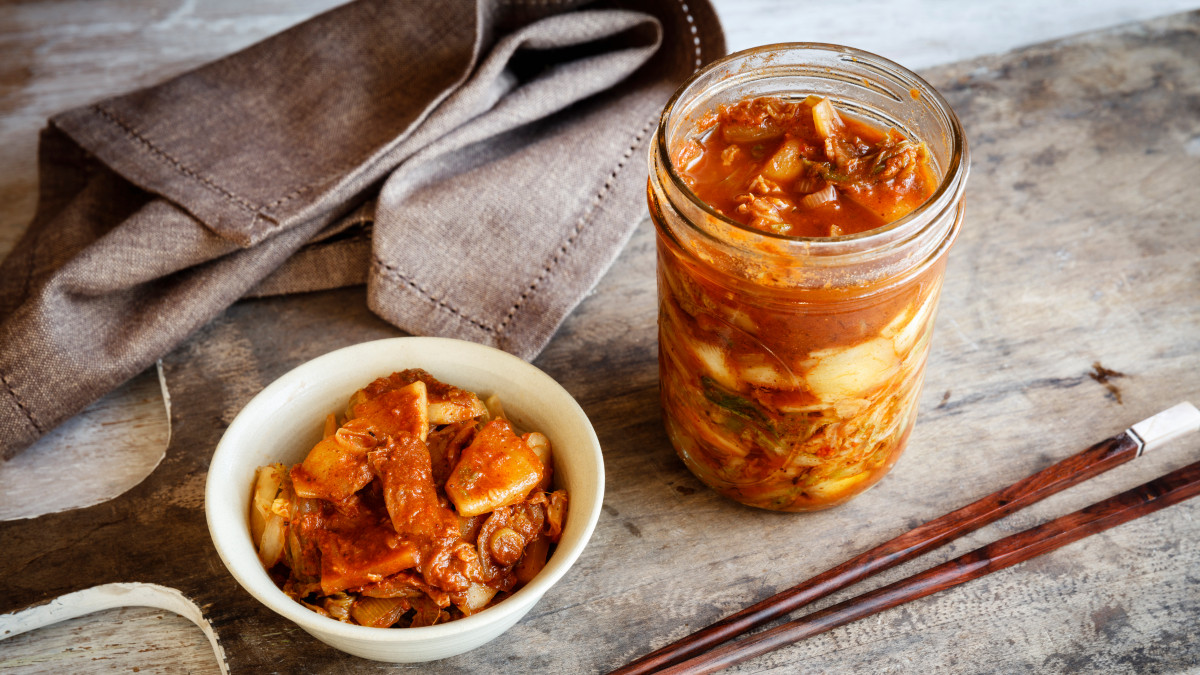
KIMCHI IS A SPICY, tangy, thousand-year-old Korean staple made by fermenting cabbage and assorted vegetables. Traditionally it is eaten as an appetizer, though recently it’s become a gastropub darling, found atop hot dogs, tacos, and more. And it has health bona fides. “Kimchi possesses anti-inflammatory, antibacterial, , anticancer, and antiobesity properties,” finds a review of research from Frontiers in Microbiology.
For athletes with common GI issues like abdominal pain, bloating, and “runner’s trots,” kimchi’s 900 strains of probiotics can help the gut biome—bacterial flora that aids in digestion—to alleviate symptoms.
Those probiotics might boost performance, too. Your intestines pull out fluids, nutrients, and electrolytes from everything you consume and send them into the bloodstream, and high-intensity workouts can actually suppress intestinal function, according to researchers from the Medical University of Bialystock in Poland. Probiotics help the organs return to normal functioning—so the you guzzle at mile 15 can reach its full potential.
Kimchi is packed with healthy raw materials, too. contains vitamins A and C and fiber, as well as lutein and beta-carotene, which are good for your eyes and skin. Flavonoid-rich onions and garlic join the party, helping with heart and brain health. And spicy chilies may help boost metabolism.
Buy refrigerated kimchi from the supermarket to start. After you’re hooked, try your hand at making it from scratch. (We like Rachel Yang’s cookbook My Rice Bowl, which has seven variations.) You’ll spend the fermentation time devising lots of dishes to put it on.
Comments are closed.